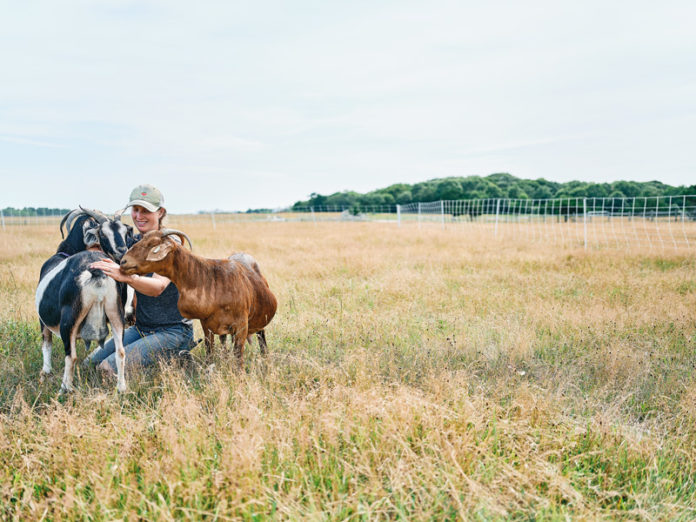On a foggy spring afternoon, Katama’s Slough Farm is buzzing with activity.
It’s been a wild ride for the farm’s executive director, Julie Scott. About seven years ago while working as the farm manager at the FARM Institute, she got a cold call. Would she be interested in spearheading an undefined agricultural nonprofit initiative on another farm property just down the road? What a question!
After that initial call and many more, in the fall of 2015 Julie and her husband Laine Scott signed on as farm consultants to help the owners and founders (who wish to be anonymous) shape and think about what Slough Farm could be. “We didn’t want the farm to be redundant, and there were so many possibilities,” Julie says during my visit. Julie and the anonymous founders landed on a broad mission: essentially to give the Martha’s Vineyard community a teaching farm that embraces regenerative agriculture, supports and collaborates with fellow island farmers, addresses food equity through a number of vehicles, and also offers space for creative communities and artists. “We want to create a place that is a cross-section for the arts,” Julie says. “Culture, health, and wellness. And the farm is the heart of all of those things.”
In the spring of 2016, Laine got to work, revamping the old garden, getting it up and running. “The ground was pretty good, but we have had to work on improving the soil for the area where we have expanded the garden — you can see the line. And we’ve just put in another big garden across the fields.” The farm’s grazing fields also needed remediation: “You can still see where horses or other animals used to congregate.”Julie points to a thinner patch of grass along a fence.
While Laine worked on the gardens and fields, Julie and the founders evaluated the farm’s existing infrastructure, and realized they needed to replace structures in disrepair with buildings to support year-round housing, livestock, a teaching kitchen, guest rooms, bathrooms, a studio space, an office, a wood shop. “Maryanne Thomson was the architect, and Tom Tate was here realizing the vision for two years,” Julie says. So Laine’s initial gardening ventures were amid and adjacent to a sprawling construction site. “It was really unbelievable,” Julie laughs.
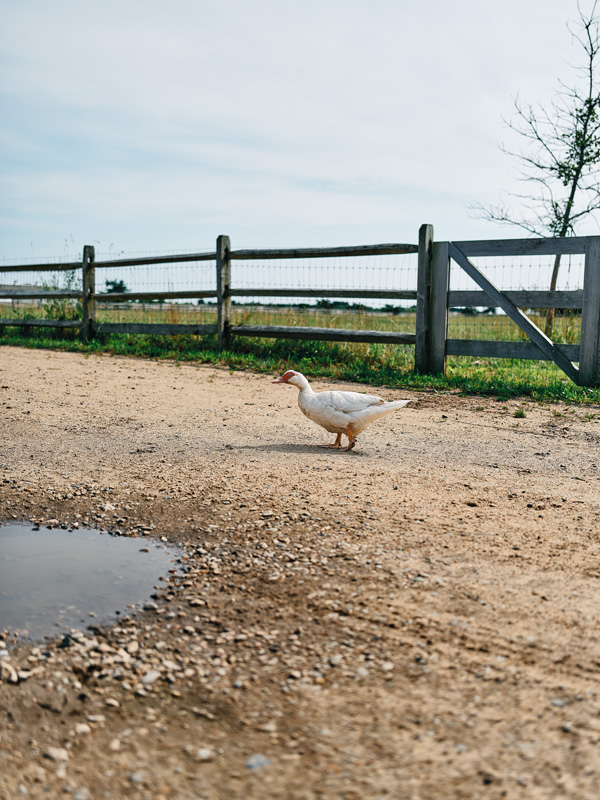
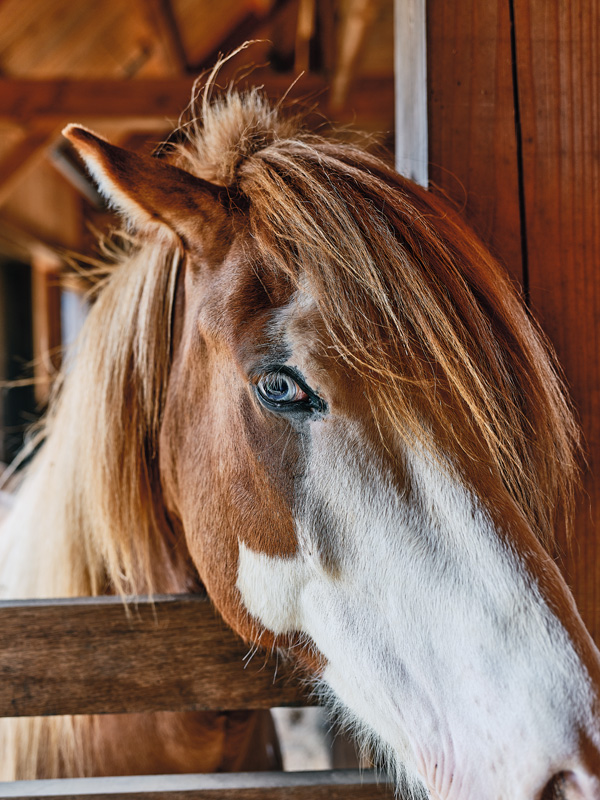
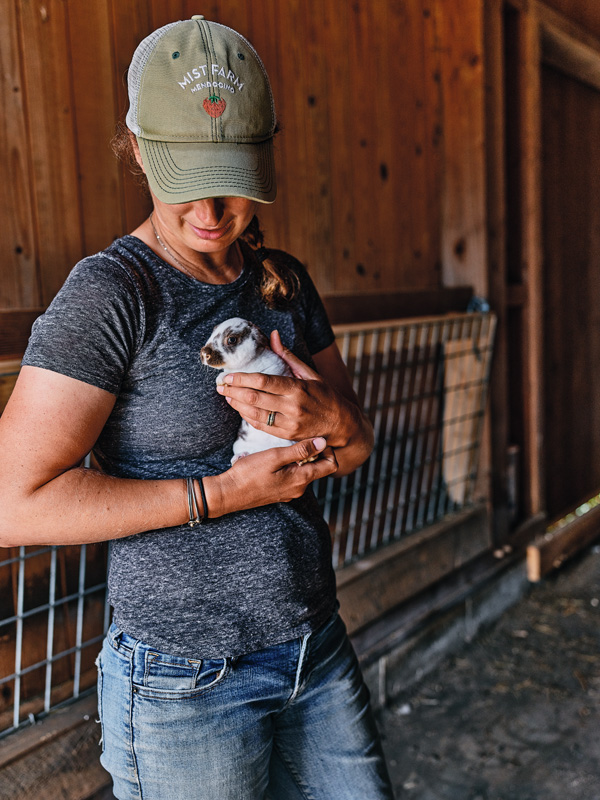
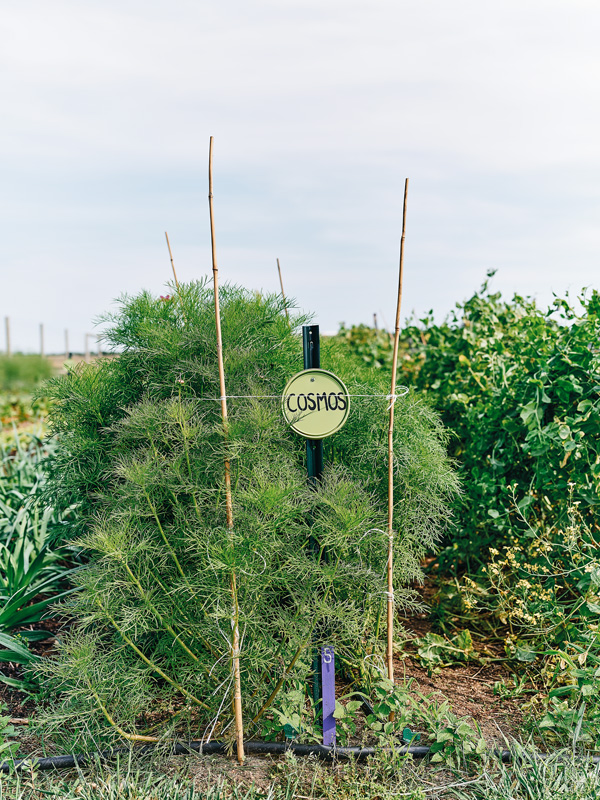

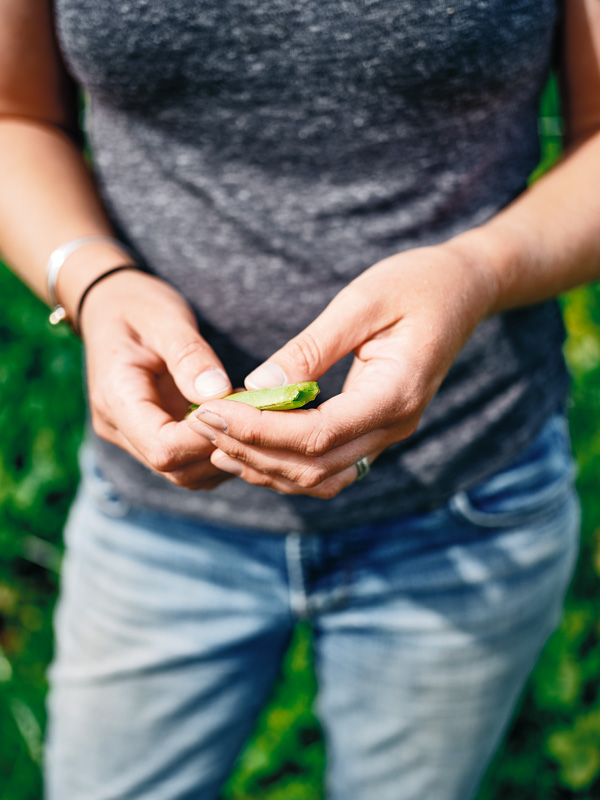

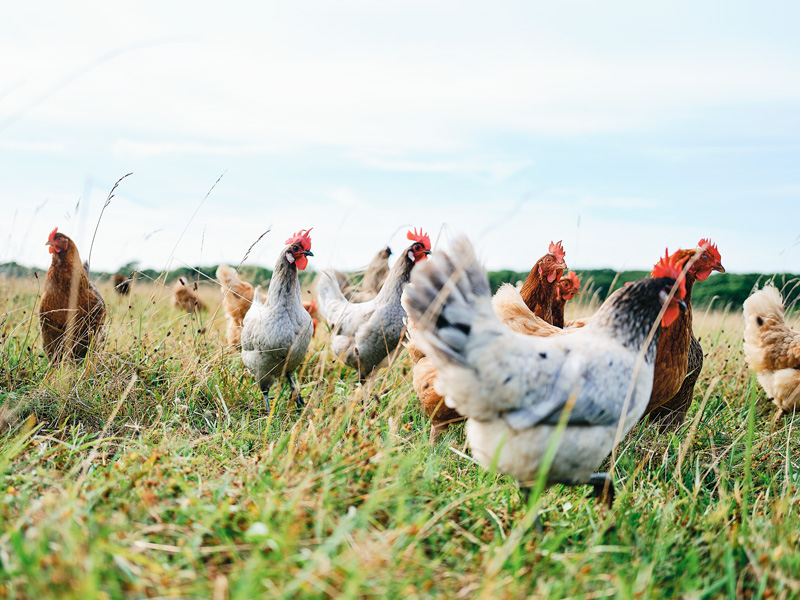
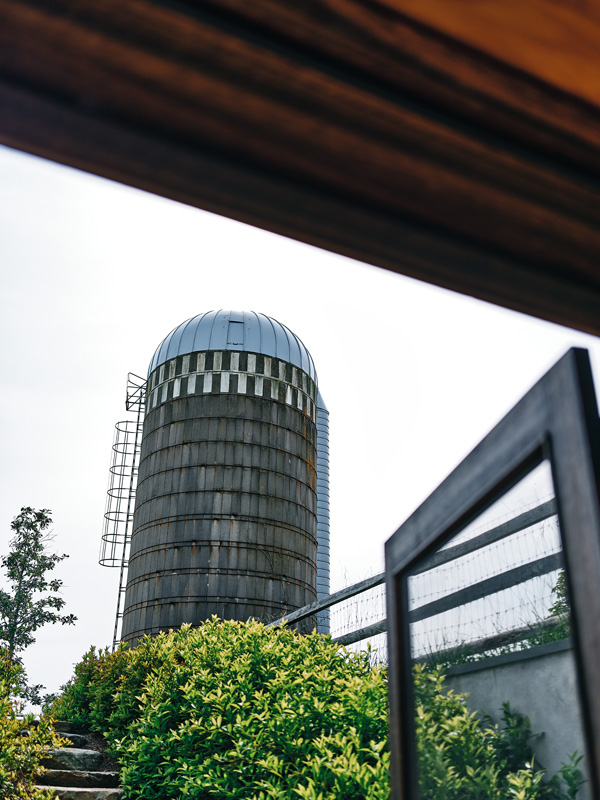
The end result of the exterior of the buildings and layout of the farm is a modern take on the sensibility of an old English farm. Practical and elegant. The interiors feel more Danish. Clean, wood-dominant, and light. Inside, one cannot help but feel transported. The materials — from fabrics to light fixtures and furniture — are spot-on. Textural, but not overwhelming to the eye. Beautiful but not precious. Michael Van Valkenburgh did the landscaping, and his work, realized by Contemporary Landscapes, helps the new buildings make a seamless transition into the natural farm and field landscape. The courtyard is particularly elegant.
Julie says, “At first, I was shy about all of this. It’s all so new. I am a person who frequents the Dumptique. But then we invited other farmers to come take a look. Morning Glory’s Jim and Debbie Athearn, Matthew Dix, and Rebbeca Miller, and a few others. After showing them around, Jim Athearn said to me, ‘Wow, I wouldn’t change a single thing about this.’ To me, he is a real farmer. And I have to say that his words resonated, and changed the way I feel about the place.”
Today — infrastructure built, trees planted, garden rolling, animals grazing — Julie finds herself with an incredible team realizing the Slough Farm Foundation’s mission. “By nature, I am a collaborator,” she says. Since its official launch in July 2018, Slough Farm has forged relationships with Island Grown Initiative and the Food Pantry, the Agricultural Society, Community Services, Hospice, Island libraries, the Yard, chefs, and now will be supporting the agricultural piece of the educational arm of the FARM Institute land for the Trustees of Reservations. It’s ambitious and astonishing to see how much she has accomplished — especially amid a pandemic! There have been cooking classes, dance performances, and children visiting and helping on the farm. And the amount of food coming out of their gardens and fields — addressing food equity on the Island — is tremendous.
Julie hails from Dennis, and tells me that her first farm job was at 12. “Draft animals were my first love. But horses, more than any other animal, take up so much space and time. And you can’t eat them if it doesn’t work out.” She laughs, “We do have two Icelandic ponies here in the summer.” But mainly, the farm focuses on raising meat, with Highland cattle, Tunis sheep, heritage turkeys, a mixed flock of heritage chickens, goats, ducks, pigs (seasonally), and bees: “One thing I really want to curb is all the unwanted roosters here. So I’m encouraging teachers to not hatch chicks, and raise heritage-breed turkeys instead. We will process people’s roosters, but they have to bring them the day before. No sooner.”
Julie went to Sterling College and studied sustainable agriculture, then worked on a number of farms before landing a job at the FARM Institute 13 years ago. Her experience for her senior research project — developing educational programs for a farm on the Cape for the local farm bureau — was what eventually brought her to the FARM Institute and the Island. “It was between here and another teaching farm in Shelburne, Vt.,” she said. “Laine surfs. So the choice was easy.”

